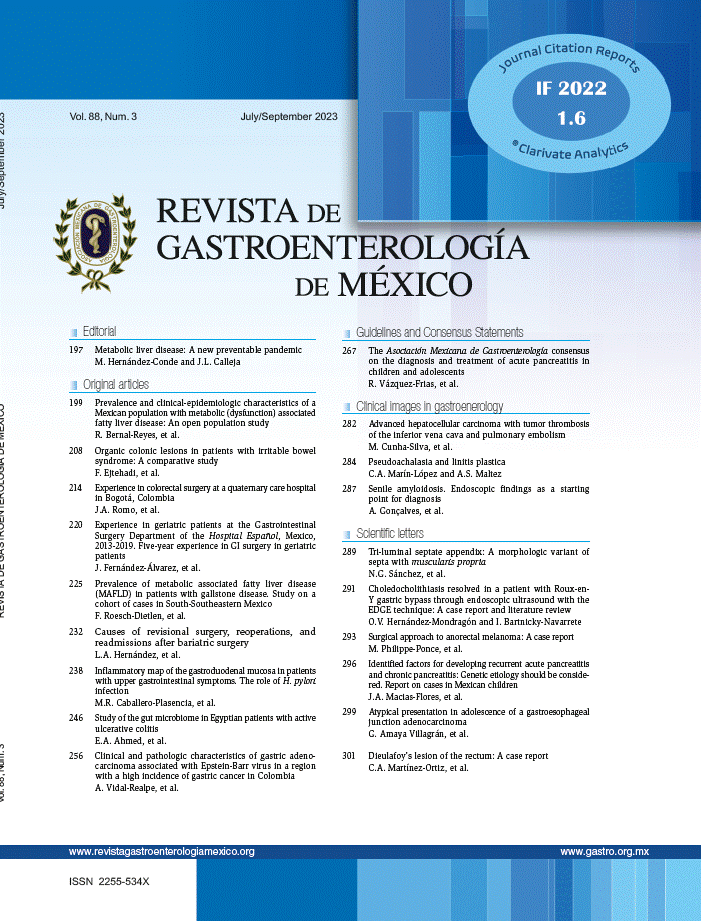A 27-year-old female patient arrived at the emergency department with a 3-day history of excruciating retrosternal pain and dysphagia. She had been taking doxycycline for one month as treatment for acne. The patient stated she swallowed the capsule with insufficient water, lying down immediately afterwards. Endoscopy showed three areas of shallow circumferential ulceration, two of them facing each other (Fig. 1). Biopsies revealed only moderate-to-severe acute inflammatory changes. Doxycycline was suspended and sucralfate was started, resulting in progressive symptom improvement. Several drugs have been reported to cause esophagitis. Symptoms include retrosternal pain, dysphagia, and odynophagia. Risk factors include pills ingested in the supine position with little water, altered esophageal anatomy/motility, and pill characteristics. Doxycycline, tetracycline, and clindamycin are the causal agents in > 50% of cases. Esophageal injury is related to prolonged contact of the drug with the mucosa. Endoscopic findings include one or multiple shallow solitary ulcers. Almost half of patients will develop mirror-image or “kissing” ulcers. Most cases heal spontaneously, with symptom resolution in one week. Viscous xylocaine or sucralfate suspension before meals provides temporary relief.
No experiments were performed on humans for this study.
The authors have followed the protocols of their work center in relation to the publication of patient data, preserving absolute patient confidentiality and anonymity. Therefore, requesting informed consent for the publication of this article was not required.
The authors declare that this article contains no personal information that could identify the patient.
Financial disclosureNo financial support was received in relation to this study/article.
Conflict of interestThe authors declare that there is no conflict of interest.
Please cite this article as: Martínez-Cabriales SA, González-Moreno EI. Úlceras esofágicas «en beso» inducidas por doxiciclina. Revista de Gastroenterología de México. 2021;86:86–87.





